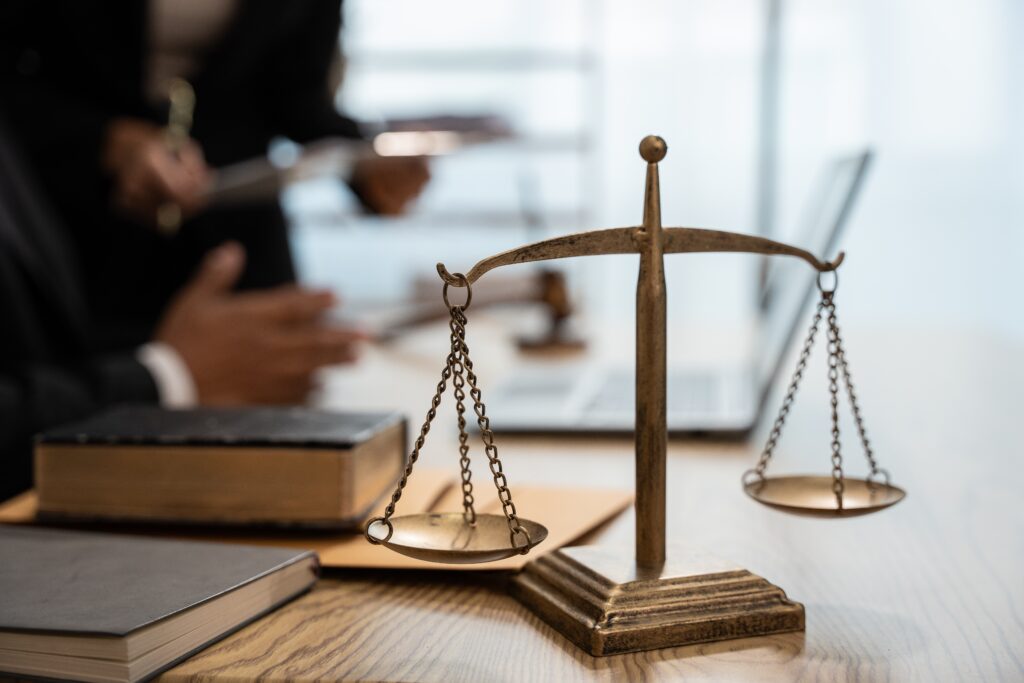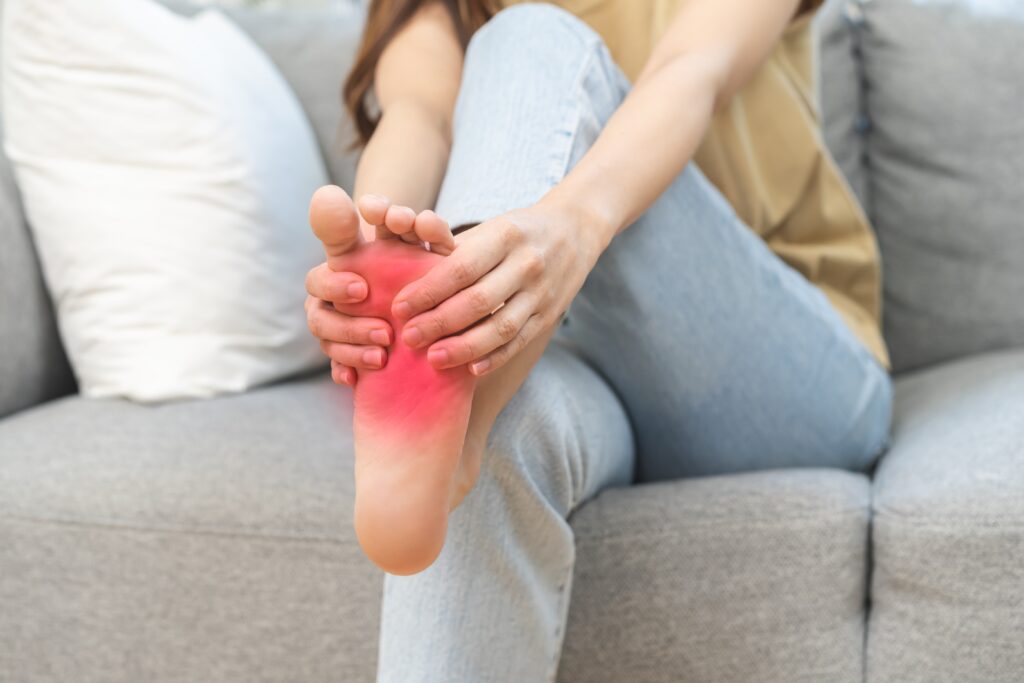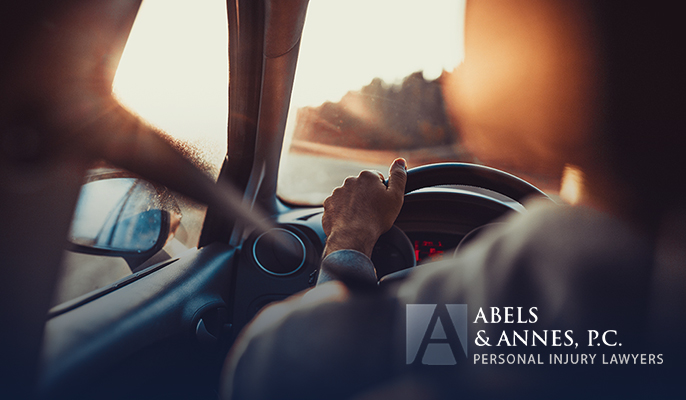
The thrill of riding a motorcycle is unparalleled—the open road, the sense of freedom, and the unique connection between rider and machine. However, this exhilarating experience comes with challenges, particularly when navigating traffic and understanding the right of way.
The question "Do motorcycles have the right of way?" isn't as simple as it might seem. The answer depends on various factors, including specific traffic situations, local laws, and the actions of motorcyclists and other road drivers. This guide from a Chicago motorcycle accident lawyer aims to shed light on this often misunderstood aspect of road safety and traffic law.
Chicago Motorcycle Accident Guide
- Understanding the Right of Way
- General Traffic Laws and Motorcycles
- Common Misconceptions about Motorcycles and Right of Way
- Scenarios Where Motorcycles Have Right of Way
- Scenarios Where Motorcycles Don't Have Right of Way
- Legal Consequences of Violating a Motorcycle's Right of Way
- Damages in Motorcycle Accident Cases
- The Role of a Motorcycle Accident Attorney
- Contact a Motorcycle Accident Attorney
Understanding the Right of Way
Right of way refers to the legal right of a road user to proceed with precedence in a particular situation or place. It's a concept designed to help traffic flow smoothly and safely by establishing a hierarchy of who goes first in different scenarios. However, it's important to note that right of way is often given, not taken. This means that even if you have the right of way, always be prepared to yield if necessary to prevent an accident. Safety should always be the top priority for all road users.
General Traffic Laws and Motorcycles
Motorcycles are generally subject to the same traffic laws as other vehicles. This means that in most situations, motorcycles have the same rights and responsibilities as cars when it comes to the right of way. However, there are some specific laws and considerations that apply to motorcycles.
Some states allow motorcycles to lane split or ride between lanes of slow-moving or stopped traffic. In states where this is legal, other vehicles must give way to motorcycles engaging in this practice. Due to their smaller size, motorcycles can be harder to see. While this doesn't change right-of-way rules, motorcyclists and other drivers must be extra vigilant. Motorcycles can accelerate faster and stop faster than many other vehicles, affecting how the right-of-way plays out in real-world situations.
Common Misconceptions about Motorcycles and Right of Way
Several misconceptions about motorcycles and right-of-way can lead to dangerous situations on the road. One common myth is that motorcycles always have the right of way. This is not true. Motorcycles must follow the same right-of-way rules as other vehicles.
Another misconception is that motorcycles can go wherever they fit. While motorcycles are smaller, they must obey lane markings and traffic patterns. Perhaps the most harmful stereotype is that motorcycles are always at Fault in accidents. This is simply not true. The Fault of an accident is determined by the specific circumstances, not by the type of vehicle involved.
Scenarios Where Motorcycles Have Right of Way
There are several common scenarios where motorcycles typically have the right of way. A motorcycle should proceed first when it arrives at an intersection, particularly at a four-way stop. Similarly, when a motorcycle is already in a roundabout, it has the right of way over vehicles entering. If a vehicle turns left at an intersection and a motorcycle goes straight through, the motorcycle has the right of way. Additionally, a motorcycle on a street has the right of way over vehicles on streets controlled by stop or yield signs.
Scenarios Where Motorcycles Don't Have Right of Way
Conversely, there are situations where motorcycles must yield the right of way. If a motorcycle encounters a yield sign, it must give way to cross traffic. When entering a roadway from an alley, parking lot, or driveway, motorcycles must yield to traffic already on the main road. At an uncontrolled T-intersection, vehicles on the through road have the right of way over those on the terminating road. Like all vehicles, motorcycles must yield to emergency vehicles with active sirens and lights.
Legal Consequences of Violating a Motorcycle's Right of Way
Violating a motorcycle's right of way can have serious legal consequences. Suppose a driver fails to yield the right of way to a motorcycle, and an accident occurs. In that case, the driver may be held liable for property damage to the motorcycle, medical expenses of the motorcyclist, lost income if the motorcyclist cannot work due to injuries, and pain and suffering damages. In severe cases, criminal charges may also apply, especially if the violation results in serious injury or death.
Damages in Motorcycle Accident Cases
When a motorcyclist suffers an injury due to another party's negligence or failure to yield the right of way, the resulting damages can be severe and wide-ranging. Understanding the types of damages that may be recoverable is important for anyone involved in a motorcycle accident.
Physical Injuries and Medical Expenses
Motorcycle accidents often result in serious physical injuries. These can range from road rash and broken bones to more severe injuries like spinal cord damage, traumatic brain injuries, or amputations.
The medical expenses associated with these injuries can be substantial. They may include emergency room visits, surgeries, hospital stays, medication costs, physical therapy, and long-term rehabilitation. In cases of permanent disability, there may be ongoing medical needs that extend far into the future. A motorcycle accident lawyer can ensure they account for all your current and future medical bills in any damages claim.
Lost Income/Earning Capacity
Many motorcycle accident victims find themselves cannot work for extended periods while recovering from their injuries. This loss of income can create significant financial hardship. In severe injuries, there may be a long-term or permanent impact on the victim's ability to earn a living. Damages can include the income lost during recovery and the reduction in future earning capacity if the injuries prevent the victim from returning to their previous occupation or working.
Pain and Suffering

Beyond the tangible financial losses, motorcycle accident victims often endure considerable physical pain and emotional suffering. This can include the immediate pain from injuries, ongoing discomfort during recovery, and the emotional distress of dealing with the accident's aftermath. Chronic pain, anxiety, depression, and post-traumatic stress disorder (PTSD) are not uncommon. While putting a monetary value on these experiences is challenging, they recognize them as legitimate damages in personal injury cases.
Loss of Enjoyment of Life
Serious injuries from a motorcycle accident can significantly impact a person's quality of life. Victims cannot participate in activities they once enjoyed, such as playing sports, pursuing hobbies, or simply spending quality time with family and friends. This loss of enjoyment of life represents another form of non-economic damage that a compensation claim can include, ensuring that the full extent of the impact on the victim's daily life is acknowledged and addressed.
Property Damage
Motorcycle accidents typically result in damage not only to the motorcycle itself but also to personal injuries sustained by the rider. Beyond physical harm, there is also the financial impact of repairing or replacing the motorcycle and any damaged gear or personal property. These costs are significant components of the overall damage picture in a motorcycle accident case. Having a motorcycle accident attorney who understands these complexities and ensures that your compensation claim comprehensively addresses all aspects of your physical and financial losses is crucial.
Punitive Damages
The court may award punitive damages when the at-fault party's behavior is egregious or reckless. These damages are not tied to specific losses suffered by the victim but serve to penalize the wrongdoer and deter similar behavior in the future. While less common, punitive damages can significantly increase the overall compensation in a motorcycle accident case.
Long-Term Care and Lifestyle Adjustments
Severe motorcycle accidents can necessitate long-term care or significant lifestyle changes. This might include the need for in-home care, modifications to living spaces to accommodate disabilities, or the use of prosthetics or mobility devices. These ongoing costs and lifestyle impacts are important considerations when calculating damages.
Family Impact
In some cases, the impact of a motorcycle accident extends beyond the injured individual to affect their family members. Spouses may have claims for loss of consortium, which refers to the loss of companionship, affection, and support. In fatal accidents, families may pursue wrongful death claims, which can include funeral expenses, loss of financial support, and loss of parental guidance for children.
Calculating and proving these damages requires a thorough understanding of the law and the long-term implications of motorcycle accident injuries. A motorcycle accident lawyer can ensure they identify all applicable damage properly, document, and aggressively pursue. Your attorney can work with medical professionals, economists, and life care planners to build a comprehensive picture of the accident's impact, helping to secure fair compensation for the victim's losses and suffering.
Motorcycle accident victims must remember that insurance companies often attempt to minimize payouts. A knowledgeable attorney can significantly increase the compensation recovered, ensuring that all current and future needs resulting from the accident receive adequate attention.
The Role of a Motorcycle Accident Attorney
When accidents occur, a motorcycle accident attorney can play a vital role in protecting riders' rights. One of the primary functions of a motorcycle accident attorney is to conduct a thorough investigation of the accident. This process is critical in determining Fault and building a strong case.
Gathering and preserving evidence is another key responsibility of these attorneys. After an accident, crucial evidence can rapidly disappear or become altered. A skilled attorney knows what evidence is most valuable and how to properly collect and preserve it for use in negotiations or court proceedings. This might include obtaining surveillance footage, securing the damaged motorcycle before repairs, or documenting road conditions and signage at the accident site.
Negotiating with insurance companies is a significant part of a motorcycle accident attorney's role. Insurance adjusters are trained to minimize payouts and often take advantage of victims unfamiliar with the claims process or unsure of their rights. An experienced attorney understands the tactics used by insurance companies and can skillfully counter their arguments. An attorney can accurately value a claim, considering current medical expenses, lost income, future costs, and non-economic damages like pain and suffering.

If negotiations fail to reach a fair settlement, a motorcycle accident attorney is ready to represent you in court. This willingness to go to trial often motivates insurance companies to offer fairer settlements to avoid the uncertainty and expense of a court battle.
Ensuring fair compensation for injuries and damages is perhaps the most important aspect of a motorcycle accident attorney's work. Your attorney will understand the full scope of damages available in a motorcycle accident case, including medical expenses, lost income, pain and suffering, and sometimes even punitive damages. Your attorney works diligently to document these damages and argue for maximum compensation.
A motorcycle accident attorney provides valuable guidance to their clients throughout the legal process. Your attorney can explain complex legal concepts in understandable terms, keep you informed about the progress of your case, and offer advice on important decisions. This guidance extends beyond just the legal aspects of the case - your attorney can often recommend medical specialists, provide you with an understanding of your insurance coverage, and support in dealing with the many challenges that arise after a serious accident.
A motorcycle accident attorney is a powerful advocate for injured riders, fighting to protect their rights and ensure they receive the compensation they need to recover and move forward. An attorney's resources and dedication can make a significant difference in the outcome of a motorcycle accident case, providing victims with the support and representation they need during a difficult time.
Contact a Motorcycle Accident Attorney
Have you been in a motorcycle accident where someone violated your right of way? Don't navigate the aftermath alone. Take the first step towards protecting your rights by scheduling a consultation today.
With an attorney's knowledge and experience in handling motorcycle accidents, you can confidently fight for the compensation and justice you rightfully deserve. Remember, prioritizing your safety and protecting your rights is crucial. Take the first proactive step towards justice and financial recovery by contacting a dedicated motorcycle accident attorney today. Seeking legal guidance can significantly impact the outcome of your case and ensure that your attorney properly addresses all aspects of your accident.


